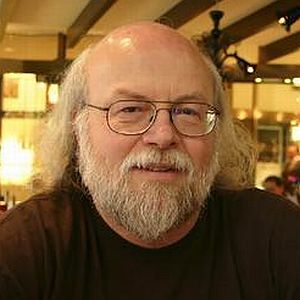When James Gosling led the team that developed the Java language and platform, Sun Microsystems was riding high and Java stood as a landscape-changing, revolutionary technology. Financial realities eventually brought Sun to its knees and Oracle entered as a potential saviour, saying all the right things, but behind the scenes, as far as Gosling was concerned, doing all the wrong ones.
Gosling created Java, a feat that many would assume would demand some modicum of respect but, instead, he says all he got from Oracle was the opposite. In an exclusive interview with eWEEK, Gosling came clean about why he left Oracle and what he thinks of the company’s stewardship of his creation going forward.
In his April blog post announcing his resignation, Gosling would only say, “As to why I left, it’s difficult to answer: Just about anything I could say that would be accurate and honest would do more harm than good.”
Gosling Spills The Beans
 However, over dinner with eWEEK in San Francisco during the week of Oracle’s first JavaOne conference, held concurrently with Oracle OpenWorld, Gosling went a bit deeper, telling a tale of low-balling key employees and cutting off at the knees projects and strategies Sun had put into play.
However, over dinner with eWEEK in San Francisco during the week of Oracle’s first JavaOne conference, held concurrently with Oracle OpenWorld, Gosling went a bit deeper, telling a tale of low-balling key employees and cutting off at the knees projects and strategies Sun had put into play.
“There is actually a long list of things that played into my leaving Oracle,” Gosling said. “There were things like my salary offer. After getting my offer from them I tried to figure out what my compensation would be like on my W-2 form and it was a major hit. They copied my base salary [from Sun],” he said.
However, at Sun, any executive that was a vice president or above was given what amounted to a bump or bonus based on the performance of the company. “In a mediocre year you did OK but in a good year you did great [in terms of this compensation]. For the privilege of working for Oracle, they wanted me to take a big pay cut,” Gosling said.
An Oracle spokeswoman said the company had no comment on Gosling’s claims.
That in itself was not a showstopper. Indeed, given that constraint, Gosling moved on with his employment at the database giant. However, another annoyance arose when, according to Gosling, Oracle did not have a notion of a senior engineer or at least one equivalent to Gosling’s grade at Sun, where he was a fellow. “In my job offer, they had me at a fairly significant grade level down,” he said.
The Final Straw
Even that was not the final factor in leading to his decision to leave the company. Perhaps the final straw was what Gosling said was Oracle’s move to rein him in. Indeed they owned Sun, and thus Java. So they also owned its creator and his intellectual property and it was up to Oracle to decide what Gosling or anybody else had to say about Java.
“My ability to decide anything at Oracle was minimised,” Gosling said. “Oracle is an extremely micromanaged company. So myself and my peers in the Java area were not allowed to decide anything. All of our authority to decide anything evaporated.”
That bent Gosling’s resolve like a wishbone in the hands of two eager siblings in mid-pull after Thanksgiving dinner – but even that didn’t break it. What ultimately snapped the wishbone and made Gosling want to holler and throw up his hands Marvin-Gaye style was that “My job seemed to be to get up on stage and be a public presence for Java for Oracle. I’m from the wrong Myers-Briggs quadrant [psychometric measurement] for that,” he said.
Ethically Challenged
Add to that sentiment that Gosling already sensed that Oracle was “ethically challenged”. He said he had simply had enough and decided not to work there anymore.
Asked if the onstage part of the deal made him feel like baseball Hall of Famer Willie Mays signing autographs at San Francisco Giants events and other venues, Gosling said: “Well, Willie liked that stuff. I didn’t.”
Also, asked whether in hindsight he would have preferred Sun having been acquired by IBM (which pursued a deal to acquire Sun and then backed out late in the game) rather than Oracle, Gosling said he and at least Sun Chairman Scott McNealy debated the prospect. And the consensus, led by McNealy, was that although they said they believed “Oracle would be more savage, IBM would make more layoffs.”





